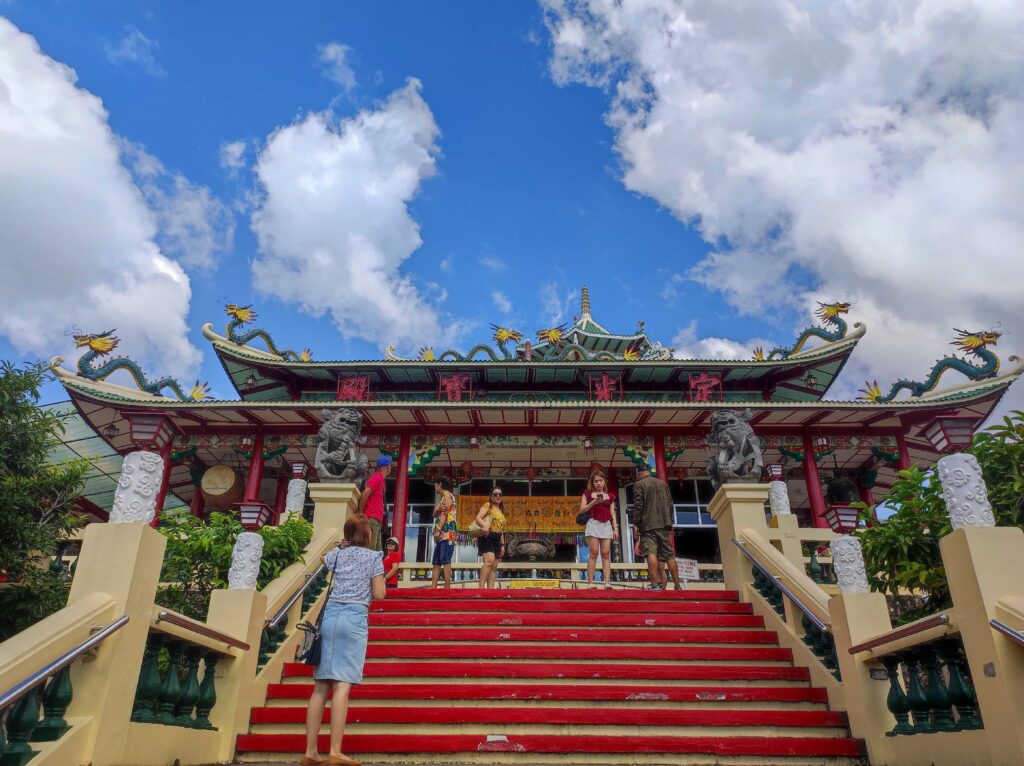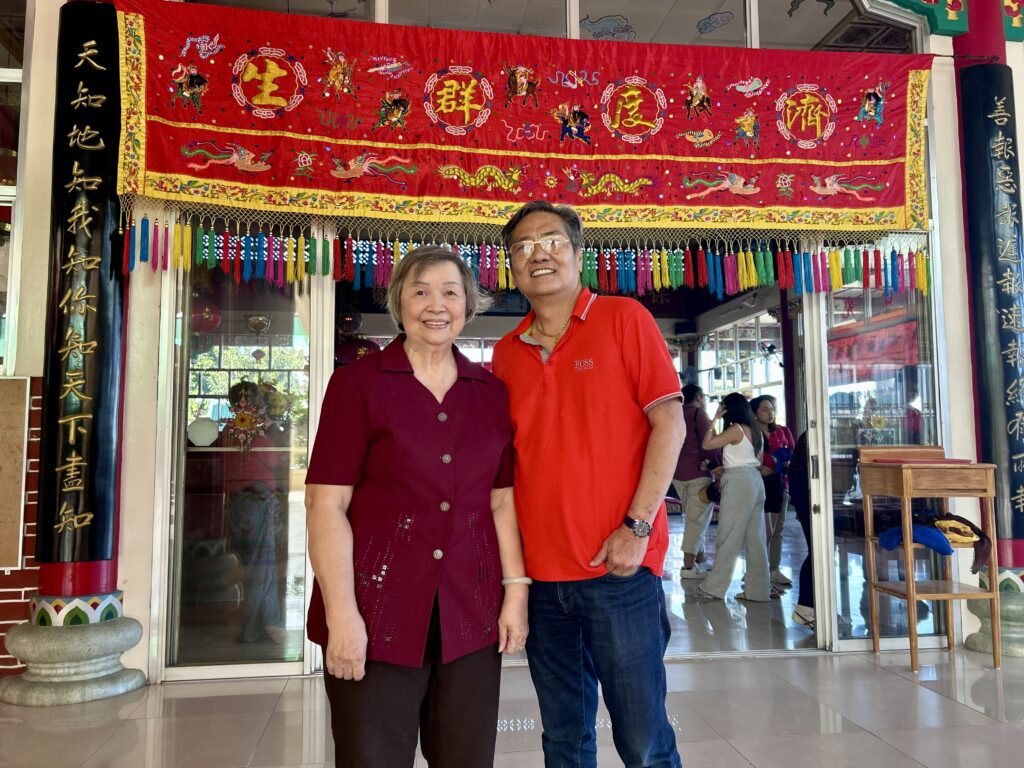
The Philippine Taoist Temple in Lahug, Cebu City. | CDN Digital Photo / Ralph Gurango
CEBU CITY, Philippines – “Patience is indeed a virtue; with it comes greater power.”
This proverbial phrase holds a valuable weight in Chinese culture, particularly in matters of faith and religion, where many believe in the transformative power of patience.
In celebration of Chinese New Year on Saturday, February 10, CDN Digital did a quick tour of one of the revered Chinese temples nestled on the island of Cebu.
This endeavor delved deep into the cultural and spiritual significance of the Chinese New Year to the local Chinese community, as it unveiled how faith resonates within the temple’s walls.
Alegria Ong, a 76-year-old Chinese elder, shared with CDN Digital her enduring commitment to honoring the sanctity of the temple for over five decades.
This longstanding tradition has been integral to her life since her youth and this has remained a cherished family ritual to this day.
She said that as part of the Chinese culture, praying for good health, fortune, and abundant blessings has long been ingrained in their roots.
According to Ong, the temple’s patron saint, “Q Kong Kong,” whom they are praying for is “very miraculous” as it consistently provides “accurate answers” to their prayers and even offers them glimpses into the future.
Accurate insights
From ordinary prayers to the fates of electoral candidates and politicians, Ong said that the patron saint has reliably offered accurate insights into future events.
This belief has been affirmed by Catalina Chu, an 80-year-old Chinese elder, who shared her story as to how the patron saint answered and guided her through her operation. She used to suffer from a condition which caused weakness in her tendons, making it painful for her to walk.
Chu said she prayed to Q Kong Kong for guidance with the use of the “jiaobei” divination tool, inquiring if she could proceed with surgery.
Jiaobei are wooden divination tools originating from China, used in pairs and thrown to seek divine guidance using a question that is answerable by yes or no.
Despite repeated attempts, she consistently received negative responses.
Chu immediately sought the help of an interpreter, who advised her to engage in prayer once more.
The interpreter suggested that she instead petition for the surgery to be scheduled after the anniversary of her late husband’s passing, believing that such timing might yield a more favorable outcome.
Following the interpreter’s counsel, she prayed once more. To her surprise, this time the divination tool yielded a positive response, indicating permission for the surgery.
Divine will
Chu realized that the divine will had favored for her surgery to be scheduled after the first death anniversary of her late husband.
When Chu was in Manila a few months later, she decided to see a doctor.
She found herself in a quandary when the doctor recommended swift medical intervention.
Despite her anticipation of the procedure, fate intervened as she fell ill with an unexpected fever just before the scheduled operation.
Chu promptly informed the doctor, leading to the postponement of the surgery. Remarkably, within an hour, her fever abated, prompting her to reconsider the operation.
However, as she prepared for the operation, her fever returned, which prompted her to reconsider once more.
It was then that she finally decided to cancel her surgery.
When she called her daughter to tell her about what had happened, Chu’s daughter astutely reminded her of the temple’s cautionary advice: to refrain from undergoing surgery until after the anniversary of her husband’s passing.
Chu then realized that it had only been seven months since her husband’s death.
According to Chu, the experience became an eye-opener for her about how “powerful and miraculous” the patron saint and the temple are.
Since then, Chu has always asked for guidance from the divine will in every decision that she needed to make regarding her life and her future.

Catalina Chu. and Allan Yu, the president of Philippines Taoist Temple.
Meanwhile, Allan Yu, president of the Philippine Taoist Temple, also shared that the temple has been the center of worship for Chinese people, including Filipinos, who seek “accurate” answers for their prayer and those who are in need of guidance.
Yu mentioned that over the years, there had been an increasing number of visitors at the temple. On Saturday alone, more than a thousand visitors came to the temple.
He also noted that Chinese religious culture does not differ much from that of the Catholics; it’s just that they don’t celebrate Masses.
Yu further stated that the Chinese New Year of 2024 has been generally successful and peaceful.
RELATED STORIES
Lunar New Year in the Philippines draws crowds to one of the world’s oldest Chinatowns
Cebu City to celebrate Chinese new year with a Red Lantern Festival at Plaza Sugbo
